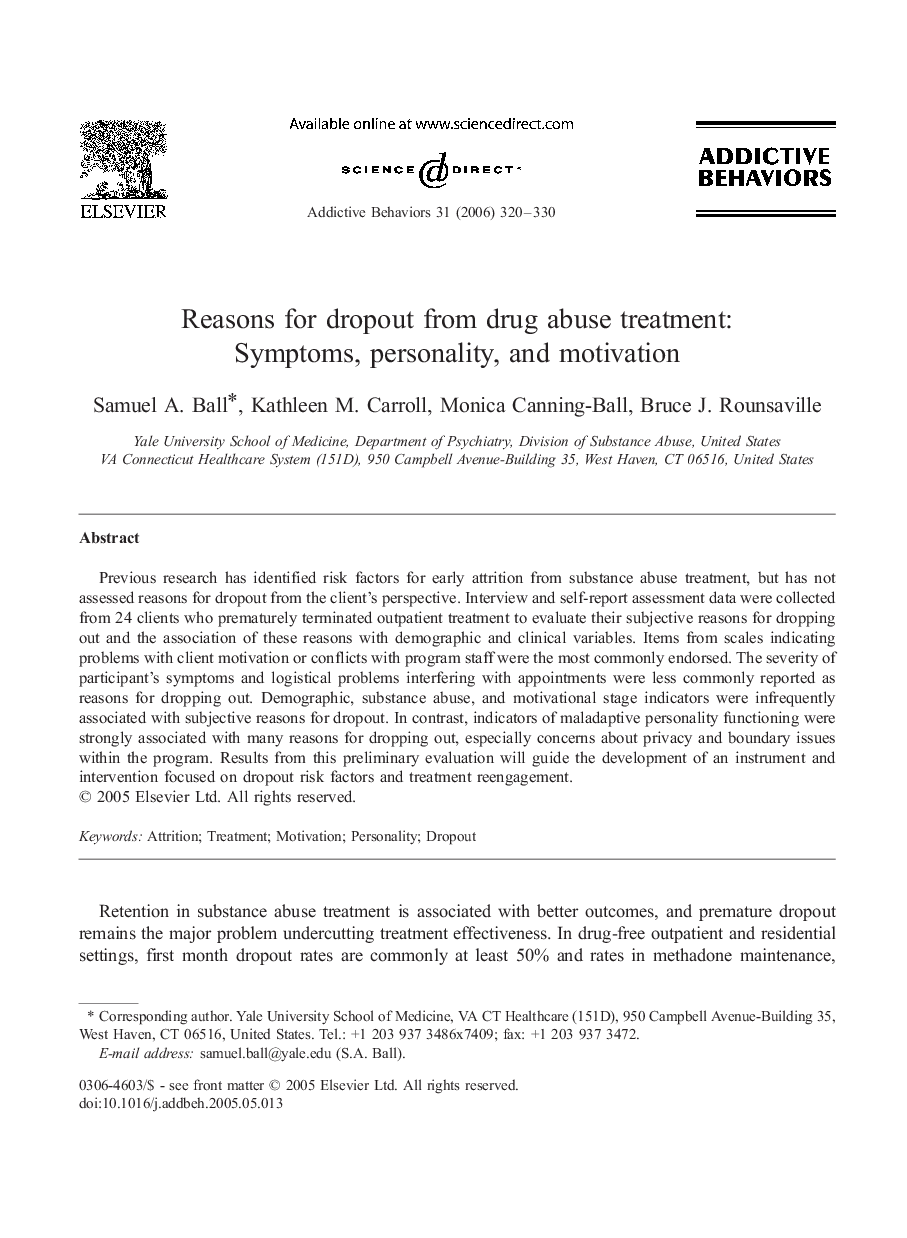| Article ID | Journal | Published Year | Pages | File Type |
|---|---|---|---|---|
| 900605 | Addictive Behaviors | 2006 | 11 Pages |
Previous research has identified risk factors for early attrition from substance abuse treatment, but has not assessed reasons for dropout from the client's perspective. Interview and self-report assessment data were collected from 24 clients who prematurely terminated outpatient treatment to evaluate their subjective reasons for dropping out and the association of these reasons with demographic and clinical variables. Items from scales indicating problems with client motivation or conflicts with program staff were the most commonly endorsed. The severity of participant's symptoms and logistical problems interfering with appointments were less commonly reported as reasons for dropping out. Demographic, substance abuse, and motivational stage indicators were infrequently associated with subjective reasons for dropout. In contrast, indicators of maladaptive personality functioning were strongly associated with many reasons for dropping out, especially concerns about privacy and boundary issues within the program. Results from this preliminary evaluation will guide the development of an instrument and intervention focused on dropout risk factors and treatment reengagement.
